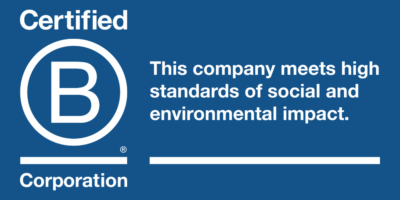October is Cybersecurity Awareness Month
October is Cybersecurity Awareness Month and in today’s digital age, our financial lives are increasingly intertwined with the online world. While the convenience of online banking, shopping, and investment can’t be denied, it also exposes us to various online threats, including check fraud, wire scams and online shopping scams. Fortunately, there are steps you can take to protect yourself and your finances from these cyber dangers. In this blog post, we’ll explore these threats and provide you with essential cybersecurity tips.
Check Fraud
Check fraud occurs when criminals manipulate or counterfeit checks to steal money from individuals or businesses. Check fraud resulting from mail theft has surged across the country. Criminals are stealing checks from mailboxes — including blue USPS mailboxes — and erasing the ink in order to write a higher value to a different recipient. These checks often have the original client’s authorized signature and are later used to present counterfeit checks or submit unauthorized ACH transactions.
Protect yourself with these tips:
- Secure Your Checks: Store your checks in a secure and locked location. Only carry the checks you need, and never leave them unattended. Write checks using gel ink.
- Monitor Your Account: Regularly review your bank and credit card statements to spot any suspicious or unauthorized transactions.
- Be Cautious with Mail: Take outgoing mail directly inside the post office for increased security. Do not let delivered mail sit in your mailbox.
- Consider Other Ways to Pay: Consider using well-known and trusted payment platforms like PayPal, Zelle, Venmo, or Apple Pay.
Beware of Phishing
Phishing is a common method used by cybercriminals to trick individuals into revealing sensitive information like passwords, credit card numbers, or personal data. Detecting phishing attempts is crucial in online cybersecurity.
Protect yourself with these tips:
- Check the Sender’s Email Address: Examine the sender’s email address closely. Be cautious if it looks suspicious, contains typos, or uses a free email service for official communication.
- Look for Spelling and Grammar Errors: Phishing emails often contain spelling and grammar mistakes. Professional organizations typically review their communications for accuracy.
- Verify the URL: Hover your mouse over any links in the email without clicking on them. Verify that the URL matches the legitimate website’s address and check for misspellings or additional characters.
- Beware of Urgent or Threatening Language: Phishing emails often use scare tactics, such as threats to close your account or legal action if you don’t respond immediately. Be skeptical of such messages.
- Question Unsolicited Attachments: Do not open email attachments from unknown or unexpected sources. Cybercriminals often use attachments to deliver malware.
- Double-Check Requests for Personal Information: Legitimate organizations rarely request sensitive information via email. If an email asks for personal details or financial data, contact the organization directly through official channels to confirm the request.
- Examine the Greetings and Salutations: Pay attention to how the email addresses you. Generic greetings like “Dear User” instead of using your name can be a red flag.
- Be Cautious of Unusual Requests: Phishing emails may ask for unusual actions, like sending money, providing passwords, or clicking on suspicious links. Always think twice before complying.
- Check for SSL Encryption: On legitimate websites, you should see “https://” and a padlock symbol in the address bar. Be cautious if the website lacks these security indicators.
- Trust Your Instincts: If something feels off or too good to be true, it probably is. Trust your instincts and take the time to verify the authenticity of the email or message.
Wire Fraud
Online payment scams often involve fraudsters tricking individuals into sending money or personal information.
Protect yourself by verifying transactions. Before sending money, verify the recipient’s identity and the legitimacy of the transaction with a phone call. Don’t rely solely on email or online communication.
- Don’t give your info to anyone who contacts you out of the blue. Honest organizations won’t call, email, or text to ask for your info, like your Social Security, bank account, or credit card numbers.
Important: Riverwater will not ask you to send a wire payment to yourself, your bank, or anyone else. Riverwater will never ask for your login, password, one-time access code, or PIN.
If someone claiming to be from Riverwater asks for this information, it’s a scam. Do not respond. Scammers can spoof phone numbers so that it appears to be a legitimate Riverwater number. When in doubt, call us immediately at 414.858.8000.
In conclusion, safeguarding your finances in the digital age requires vigilance and awareness. By staying vigilant, you can significantly reduce your risk of falling victim to investment scams, check fraud, online payment scams, and online shopping scams. Remember that staying informed and cautious is your best defense against online threats. Stay safe and secure in the virtual world. Click here for more information from the FTC on scams to be aware of and how to secure your online presence and identify.









